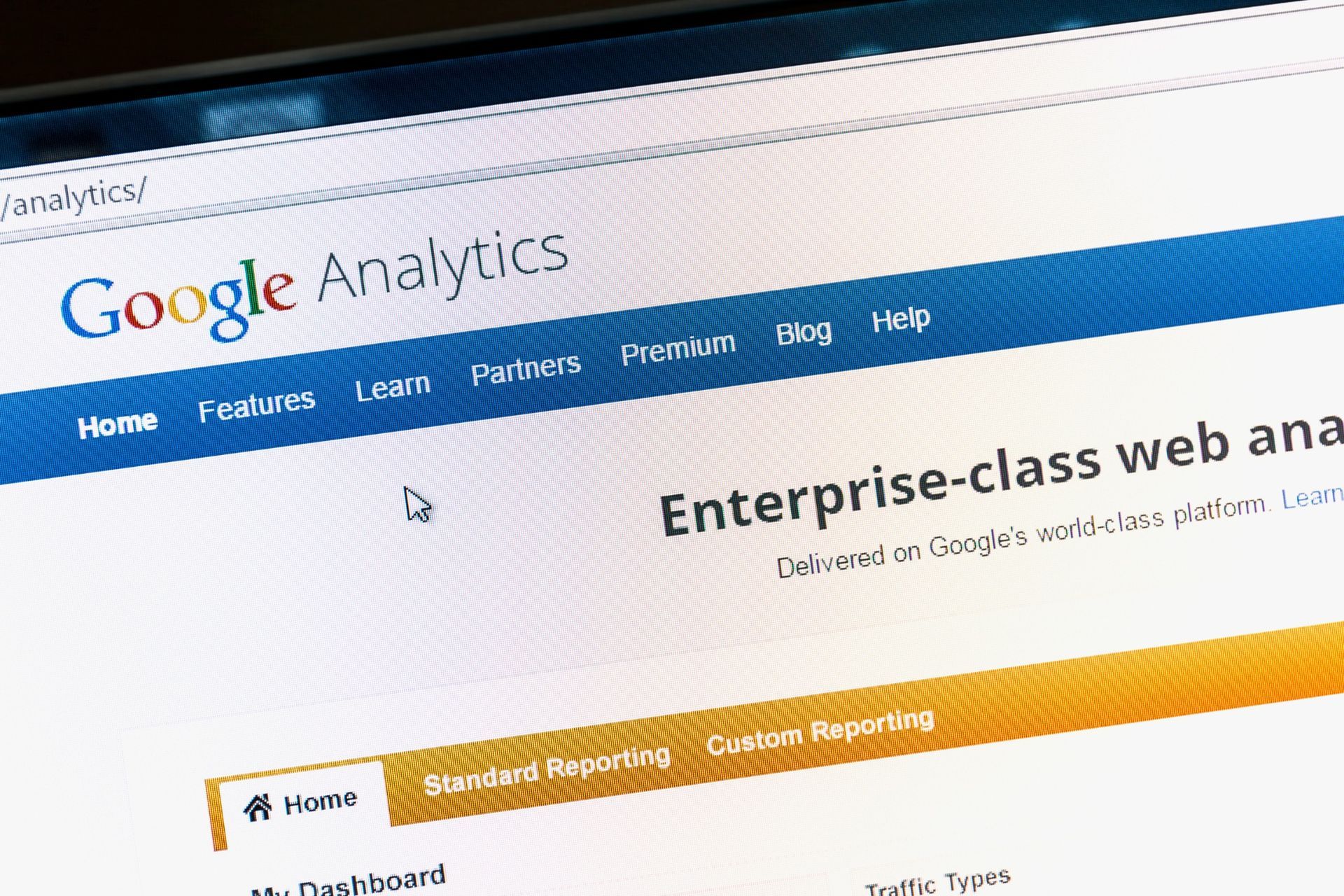Understanding Consumer Behavior With Data Analytics: How Digital Marketing Agencies Leverage Data to Understand Consumer Behavior
Data analytics is becoming increasingly important for digital marketing agencies in understanding and predicting consumer behavior. By using data tools and intelligence, businesses can gain a better understanding of the trends that are driving customer purchases.
As such, all digital marketers need to understand how to analyze data to get a more comprehensive view of their customers' buying habits so they can
craft effective strategies to reach them on an even deeper level.
In this blog post, we'll discuss how you can use data analytics techniques to effectively monitor and track consumer behavior – ultimately helping you craft custom campaigns tailored perfectly for your target market.
So whether you run your digital marketing agency or consult with large corporations on their online presence - keep reading to learn how data analytics is key in paving the way forward!
Exploring Consumer Behavior and What it Means for Digital Marketing
Consumer behavior plays a vital role in the world of digital marketing. Understanding how consumers think and behave is crucial in developing successful marketing strategies. By analyzing consumer behavior, digital marketers can identify consumer needs, preferences, and patterns.
From there, they can tailor their advertisements and content to meet those specific needs and ultimately drive conversions. Effective market research also plays a key role in understanding consumer behavior.
Through market research, digital marketers can gauge consumer satisfaction and identify areas for improvement. With the ever-evolving digital world, digital marketers must stay actively engaged in researching and analyzing consumer behavior to stay ahead of the curve.
How Data Analytics Can Help Marketers Understand Consumer Behavior
Data analytics offers a systematic approach to understanding consumer behavior. With the right tools and strategies, marketers can delve deep into data to uncover valuable insights about their audience.
Firstly, data analytics allows marketers to segment their audience based on various factors such as demographics, buying patterns, and online behavior. This segmentation can help marketers create personalized marketing campaigns that resonate with each distinct group.
Secondly, predictive modeling can be utilized to anticipate future trends in consumer behavior. It can assist marketers in staying a step ahead and aligning their strategies with anticipated consumer needs and preferences.
Thirdly, sentiment analysis can provide a deeper understanding of consumers' feelings towards a brand, product, or service. By analyzing customer reviews, social media posts, and other user-generated content, marketers can gain insights into their audience's sentiments and adjust their strategies accordingly.
Lastly, cohort analysis can provide valuable insights into the behavior of groups of customers over time. It can be particularly useful for understanding the customer lifecycle and identifying key touchpoints for engagement.
In conclusion, data analytics equips digital marketers with the tools they need to understand consumer behavior and build more effective, data-driven marketing strategies.
The Benefits of Using Data Analytics for Digital Marketing
Data analytics presents numerous benefits when applied to digital marketing. One of the key advantages is the ability to make informed decisions based
on tangible evidence. No longer do marketers have to rely on intuition or guesswork; data analytics provides concrete insights that drive decision-making processes.
Moreover, data analytics enables a more personalized customer experience. With insights into customers' preferences, habits, and behaviors, marketers can tailor their messaging and campaigns for maximum impact.
Furthermore, data analytics can help in optimizing marketing budgets. By revealing which marketing tactics are delivering the best ROI, businesses can allocate their resources more effectively.
Finally, such insights can also lead to improved products and services. By understanding what customers want and need, companies can focus their efforts on creating products and services that truly resonate with their audience.
In essence, data analytics is an instrumental tool in digital marketing, providing valuable insights that can shape strategies, optimize resources, and enhance customer relationships.
Steps to Take When Using Data Analytics to Analyze Consumer Behavior
1. Define Your Objectives: First and foremost, clearly identify what you're trying to achieve from the data analysis. It could be enhancing customer engagement, increasing conversion rates, or understanding market trends.
2. Collect Relevant Data: Gather data from diverse sources like customer feedback, online behavior, social media interactions, and purchase history. The more comprehensive the data, the more accurate the insights.
3. Process and Organize the Data: Clean and organize the collected data to ensure accuracy. Remove any irrelevant or erroneous data points that could skew the results.
4. Analyze the Data: Use data analytics techniques such as predictive modeling, segmentation, sentiment analysis, and cohort analysis to glean insights about consumer behavior.
5. Interpret the Results: Translate the raw analysis results into actionable insights. This could involve identifying patterns, predicting trends, or gauging customer sentiment.
6. Implement Changes: Use the insights gained from the data analysis to refine your marketing strategies. Tailor your campaigns to match consumer preferences and behaviors identified in the analysis.
7. Monitor and Adjust: Continuously monitor the impact of the changes on your marketing outcomes. Be prepared to adjust your strategies based on the results and feedback.
Remember, analyzing consumer behavior using data analytics is an ongoing process that requires consistent monitoring and refinement to keep up with evolving consumer trends and preferences.
Best Practices for Integrating Data Analytics Into Your Digital Marketing Strategy
When integrating data analytics into your digital marketing strategy, there are several best practices that you should consider to optimize its effectiveness and ensure that it yields the most valuable insights possible.
1. Choose the Right Data Analytics Tools: There are a plethora of data analytics tools available today. Choose one that best fits your needs and requirements, considering factors such as ease of use, the types of data it can handle, integration capabilities with other systems, and the depth of insights it provides.
2. Ensure Data Quality: The quality of your data greatly influences the accuracy of your insights. Regularly clean your data to remove duplicates, correct inaccuracies, and fill in missing data. Implement practices to improve data collection and ensure data consistency.
3. Leverage Real-Time Data: Real-time data provides instant feedback on your marketing efforts, enabling you to make quick adjustments as needed. Use real-time analytics to track visitor behavior, monitor campaign performance, and react to trends as they emerge.
4. Test and Learn: Use data analytics to regularly test different marketing strategies and learn from the results. This approach can help you identify what works best for your target audience and refine your marketing strategy accordingly.
5. Combine Quantitative and Qualitative Analysis: While quantitative data provides hard numbers, qualitative data provides context and deeper understanding. Both are crucial in a comprehensive analysis of consumer behavior.
6. Prioritize Data Privacy: Always consider the privacy of your consumers when collecting and analyzing data. Ensure you're transparent about your data practices, adhere to all relevant regulations, and take steps to secure your data against potential threats.
By following these best practices, you can harness the power of data analytics to drive your marketing efforts and deliver value to your consumers.
About Us
Looking for effective and affordable digital marketing solutions in San Antonio? Then, Cloud 9 Digital Marketing is where you should go! We provide cutting-edge, technologically advanced marketing solutions to our clients to help them get to the top of their industry, and work with them to develop a personalized plan suited to their needs and requirements.
Contact us today to get your customized plan and to learn more about our services. We look forward to helping you!









